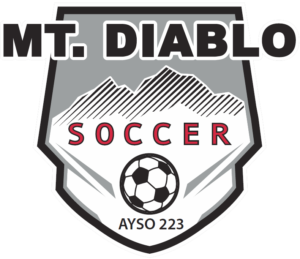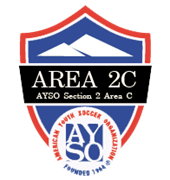In case of extremely hot weather, Mt. Diablo Soccer – AYSO Region 223, requests that all members at large be aware of the Safety Guidelines below for dealing with excessive heat.
AYSO National has not adopted specific guidelines for stopping play when the temperature hits a certain degree as there are many parts of the country that play with extreme heat conditions
for much of their seasons. But we as a league must perform our due diligence in making sure the proper steps are taken and the focus remains on the safety of our kids out there. All Coaches and certified Referees will be alerted in advance so they can make appropriate accommodations as the need arises.
GAME CANCELLATIONS
We rely on the AQMD for the most up to date information on air quality. On those days that may pose a health threat to our children, we will be in contact with the agency and based on their
recommendation, will make the decision to play or cancel practices/games accordingly. Please check the website for current field closures. In addition, heat is sometimes a problem in California. We do not cancel games for the heat but may shorten each quarter and lengthen water breaks to better care for the players. As always, it is the final decision of each child’s parent(s) as to whether they play a game or attend practice. If you feel your child is unable to participate due to the heat, please let your coach know as soon as possible. If your child is properly hydrated, he/she should have no problem playing in 10-15 minute increments.
Tips on Preventing Heat Illness
When you are watching sports, have you noticed that the first thing that the players do when they have a break is get something to drink? They drink every chance they get throughout the game. That’s how important proper hydration is to safety and athletic performance. Proper hydration is as important to athletic safety as any protective equipment. In fact, heat illnesses are among the most dangerous sports injuries, and some of the most preventable. AYSO has some tips on how to make sure your soccer player remains adequately hydrated. While proper hydration is always important, it is something to pay particular attention to as we roll into the summer months, especially in areas of increased humidity. Please make sure you keep your child fully hydrated to prevent heat illnesses. By keeping your soccer player hydrated, you not only protect her from heat illness, but also will help her play at the best of his abilities.
Did you know that when you are thirsty, you are already dehydrated? “Your body cannot keep up with the loss of fluids,” according to Herbalife’s Vice President of Medical Affairs and Education, Dr. Luigi Gratton. Your body has thirst indicators, and when you are thirsty-your body is telling you that you are already dehydrated.
Did you know there are two types of fluid loss? One type of fluid loss is “sensible” fluid loss. That is losing fluids through sweat and urine. A second type of fluid loss is “insensible” fluid loss, which is losing fluids through breathing. “The water gets broken down into CO2, and you breathe it out, so during exercise your lungs blow out a lot of fluid you don’t see. Parents will say their kid is not sweating a lot and she has not had to use the bathroom, so she is not losing any fluids. Not true. She is actually losing a tremendous amount of fluids,” Dr. Luigi explains. Did you know that 20 to 25 percent of fluid intake is through foods? Take an apple and compare it to a dry piece of fruit. That dry piece of fruit is flat. Now look at that apple – the difference is that fresh apple has water in it. It is generally easier to absorb water in food.
Did you know that a consistent, healthy diet is the best way to prevent dehydration?
Having a healthy diet is very important because if kids are just eating chips and sodas, there is not enough water there. So the best thing is always to have a good and balanced diet. To ensure your child is eating well, include fruits, vegetables and healthy protein sources such as chicken and fish. Dr. Luigi recommends that an active child should drink six to eight glasses of
fluid per day. Remember, if your child likes juice or lemonade – that counts as water, but Caffeinated drinks count against the six to eight glasses. It takes more than a full day to hydrate, so if your child has a Saturday game-make sure they are getting enough fluids on Friday. That means lots of fruits, vegetables and healthy protein,
and of course, six to eight glasses of water. On game day, start out with a healthy breakfast.
Some ideas are cereal and fruit or oatmeal and fruit. Just remember, do not give your child too
much fiber. While fiber does have water in it, it breaks down slowly and can cause bloating.
Also make sure to have a low-fat protein such as eggs or turkey sausage. A glass of milk will be
fine, but water or juice is much better for game days. They are easier on the stomach. Too
much juice can cause bloating and cramping, so if your child wants more than one glass of juice
– dilute it with water.
Make sure your child snacks and drinks water throughout the day. Dr. Luigi suggests snacking
every two to three hours. Give her a protein or carbohydrate snack such as an energy bar or
banana. She should be having on average eight ounces of water every 15 to 20 minutes.
Heat Cramps
It is the mildest form of heat illness, and it usually occurs before or after exercise, affecting only the specific muscles used. No medical attention is required.
Symptoms: thirst, chills, clammy skin, throbbing heart, muscle plain, spasms and nausea.
Treatment: First move the child to the shade and then remove excess clothing. Have a child drink four to eight ounces of fluid such as water or a sports drink, such as Herbalife’s H30, every
10 to 15 minutes.
Heat Exhaustion
It is more serious than heat cramps, and might need medical attention. This usually results from a reduced blood volume due to excessive sweating, which causes blood to pool in the arms and
legs, causing the child to feel faint or dizzy.
Symptoms: nausea, extreme fatigue, reduced sweating, headache, shortness of breath, weak and rapid pulse, dry mouth.
Treatment: Move the child to a cool place. Have the child slowly drink 16 ounces of fluid such as water or sports drinks for every pound of weight lost. Remove sweaty clothes and place ice
behind the child’s head. Seek medical attention if there is no improvement.
Heat Stroke
If a child is suffering from heat stroke, call 911 immediately. Heat stroke is a life threatening illness where the body’s temperature-regulating processes stops functioning.
Symptoms: sweating, dry and hot skin, swollen tongue, visual disturbances, rapid pulse, unsteady gait, fainting, low blood pressure, vomiting headache, loss of consciousness, shock.
Treatment: Call 911 and remove sweaty clothes. Cover child with ice packs, immerse in cold water if possible or rub with alcohol. If the child is in shock, elevate the feet.


